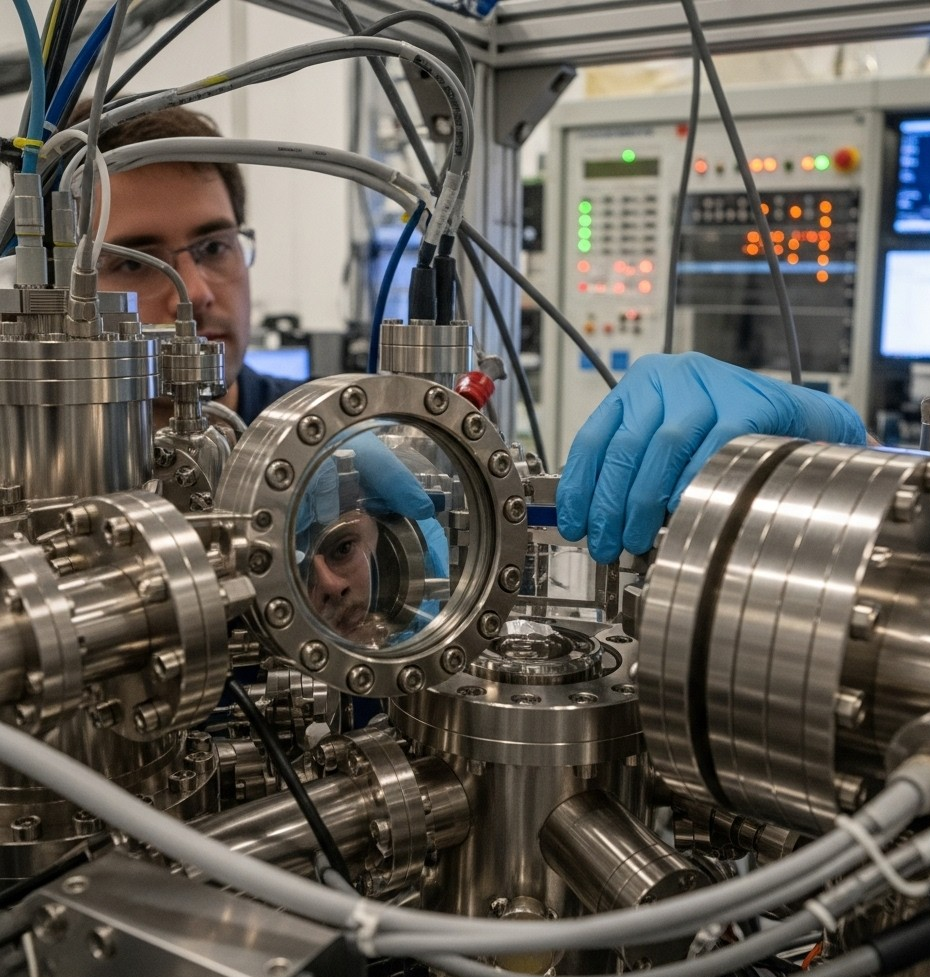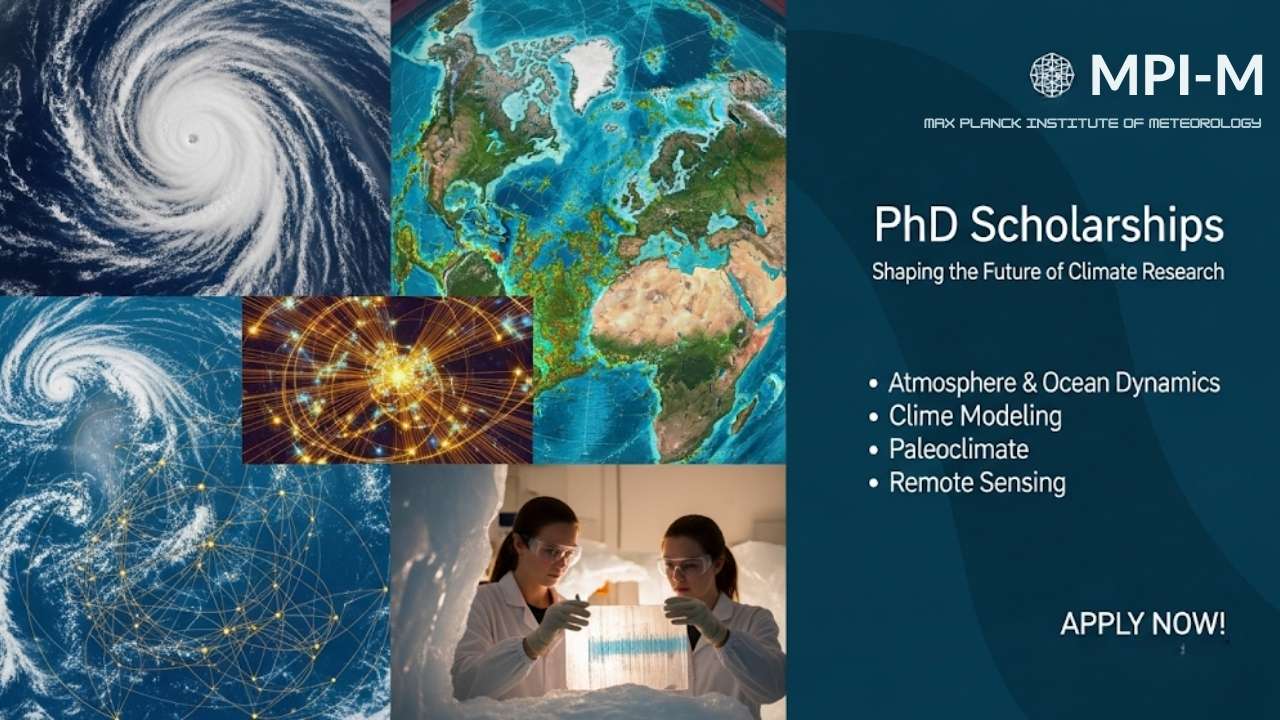Embarking on a PhD is one of the most exciting intellectual journeys you can take. If you’re searching for Helmholtz-Zentrum Dresden-Rossendorf PhD positions for 2025, you’re already looking in the right place for world-class research. Germany is renowned for its cutting-edge science, and the Helmholtz Association is its largest scientific organization. This guide is designed to demystify the process, turning your ambition into a successful application. We’ll walk through everything from finding the right position to crafting an application that stands out, giving you the confidence to take this pivotal next step in your academic career.

Helmholtz-Zentrum Dresden-Rossendorf PhD positions for 2025
| Key Aspect | Detail | Why It Matters |
| Funding Model | Typically a salaried position (TV-L E13, 65-75%), not a traditional stipend. | This provides a competitive salary, social security benefits (health insurance, pension contributions), and employment rights. |
| Research Areas | Matter, Health, and Energy. Special focus on physics, materials science, cancer research, and energy efficiency. | You’ll be working on globally relevant challenges with state-of-the-art infrastructure. |
| Graduate School | The HZDR Graduate School offers structured support, training, and networking. | You’re not just a researcher; you’re part of a supported community focused on your professional development. |
| International Environment | English is the primary working language in most research groups. | A diverse and international community makes for a rich scientific and cultural experience, with no German language barrier for research. |
Securing a Helmholtz-Zentrum Dresden-Rossendorf PhD position for 2025 is a challenging but incredibly rewarding goal. It’s an opportunity to contribute to world-leading research, grow as a scientist, and live in one of Europe’s most beautiful regions.
What is the Helmholtz-Zentrum Dresden-Rossendorf (HZDR)?
Before diving into the application, let’s talk about where you’re headed. The HZDR is a member of the prestigious Helmholtz Association, Germany’s largest scientific organization. Located just outside the beautiful city of Dresden, HZDR focuses on research in three critical fields: Matter, Health, and Energy.
Think of it less as a traditional university and more as a powerhouse of “big science.” HZDR operates large-scale research facilities, like the ELBE Center for High-Power Radiation Sources and the Ion Beam Center (IBC), which are used by scientists from around the globe.4 A PhD here means you get hands-on access to equipment and expertise that are simply unavailable elsewhere.
This isn’t just about the machines, though. It’s about the culture of collaboration and the mission to conduct research that addresses major societal challenges.

Why Pursue Your PhD at HZDR? The Core Benefits
Choosing where to do your PhD is a decade-defining decision. So, why should HZDR be at the top of your list?
- Fully Funded Positions: This is a major advantage. Most fully funded PhD Germany opportunities at research institutes like HZDR are offered as employment contracts. According to the official HZDR career page, doctoral candidates are typically employed on a part-time basis (65% or 75%) under the collective wage agreement for the public sector (TV-L). This means a stable income, health insurance, and social security benefits—a solid foundation for your life in Germany.
- World-Class Infrastructure: Whether your passion is developing new cancer therapies, designing next-generation data storage, or exploring sustainable energy solutions, HZDR provides the tools to make groundbreaking discoveries.
- Structured Doctoral Program: You won’t be left to navigate the PhD journey alone. The HZDR Graduate School provides a comprehensive curriculum that includes scientific courses, skills training (like project management and scientific writing), and invaluable networking opportunities.
- An International Hub: With staff from over 70 countries, HZDR is a melting pot of ideas and cultures. The working language is predominantly English, making it easy for international students to integrate seamlessly.
The Application Process: A Step-by-Step Guide
Unlike many university programs with fixed application deadlines, HZDR advertises PhD positions as they become available throughout the year. This requires a slightly different approach.
Step 1: Find an Open Position
Your first stop should be the HZDR Job Board. This is where all open positions, including doctoral roles, are listed.
- Filter your search: Look for positions labeled “PhD Student,” “Doctoral Candidate,” or similar.
- Read the descriptions carefully: Each posting is for a specific project within a specific research group. Pay close attention to the project description, required qualifications, and the supervising scientist. This isn’t a general admission; you’re applying for a specific job.
Step 2: Prepare Your Core Documents
While each position may have unique requirements, you will almost always need the following:
- A Compelling Cover Letter (Motivation Letter): This is your most important document. It must be tailored to the specific position. Explain why you are interested in this particular research project, how your skills and experience align, and why you want to work with that specific research group at HZDR.
- A Detailed Curriculum Vitae (CV): Use a clean, professional format (the Europass format is common in Europe but not mandatory). Highlight your academic background, research experience, publications (if any), lab skills, and programming knowledge.
- Academic Transcripts and Certificates: Include your Bachelor’s and Master’s degree certificates and full transcripts. If they are not in English or German, you will need certified translations.
Step 3: The Online Application
Once you’ve found a position and prepared your documents, you’ll apply through the HZDR online portal, linked in the job advertisement. The system is straightforward. Fill out the required fields and upload your documents as PDFs.
Step 4: The Interview
If your written application impresses the selection committee, you’ll be invited for an interview. This is often a multi-stage process:
- Initial Interview: Usually a video call with the principal investigator (PI) or your potential supervisor. This is to gauge your scientific interest and personality fit.
- Committee Interview: You may be asked to give a presentation on your Master’s thesis or a relevant research topic to a panel of scientists. Be prepared to answer detailed questions about your work and the proposed PhD project.
In my experience advising students, the key to a successful interview is demonstrating genuine curiosity. Ask thoughtful questions about the project, the team’s dynamics, and the lab’s methodology. It shows you’re not just looking for any PhD; you’re looking for the right one.
Crafting an Application That Gets Noticed
Competition for HZDR research opportunities is high. Here are a few pro-tips to make your application shine.
Tailor, Tailor, Tailor
I cannot stress this enough. A generic application sent to ten different institutes will likely be rejected by all of them. Read the research papers of the supervising scientist. In your cover letter, mention one of their recent publications and explain how it connects to your interests. This demonstrates genuine initiative and scholarly engagement.
Connect Your Skills to the Project
Don’t just list your skills. Connect them directly to the needs of the project.
- Instead of: “I have experience with Python.”
- Try: “My experience developing data analysis scripts in Python, particularly using the Pandas and Matplotlib libraries during my Master’s thesis, has prepared me to effectively analyze the large datasets that this project will generate.”
Reach Out (Politely)
For some positions, it can be beneficial to send a brief, polite email to the supervising scientist before you apply. Introduce yourself, express your strong interest in their specific opening, and attach your CV. Keep it concise and professional. This can help put you on their radar. However, only do this if you have a genuine, well-thought-out reason to connect.

Life in Dresden: Your Home for the Next Few Years
Your PhD is also about the life you build outside the lab. Dresden, known as the “Florence on the Elbe,” is a stunning city with a rich history, vibrant arts scene, and a surprisingly affordable cost of living.8
- Culture & History: Explore the rebuilt Frauenkirche, the grand Zwinger Palace, and countless museums.
- Nature: The beautiful Saxon Switzerland National Park is just a short train ride away, offering incredible hiking and climbing.
- Connectivity: Dresden is well-connected by rail to other major European cities like Berlin, Prague, and Wroclaw, perfect for weekend trips.
Living in a city that inspires you can be a huge boost to your well-being and creativity during the demanding years of a PhD.
Your Journey Starts Now
Securing a Helmholtz-Zentrum Dresden-Rossendorf PhD position for 2025 is a challenging but incredibly rewarding goal. It’s an opportunity to contribute to world-leading research, grow as a scientist, and live in one of Europe’s most beautiful regions.
The key is preparation. Start by identifying the research areas at HZDR that ignite your curiosity. Polish your CV, perfect your cover letter, and approach each application with the specific focus it deserves. This journey is a marathon, not a sprint, but with the right strategy, you can cross the finish line and begin the most exciting chapter of your academic life.
Unlock Missouri’s Rich History: Your Guide to the Center for Missouri Studies Fellowships 2025
Your Guide to the Korea Aerospace University (ROK-KAU) 2025 Fellowship Programme
FAQ
Q1:Do I need to speak German to get a PhD at HZDR?
No. The primary working language in the research groups and the HZDR Graduate School is English.10 While learning some German will certainly enrich your daily life in Dresden, it is not a prerequisite for your research work. HZDR also offers German language courses for its international staff.11
Q2:Is the PhD salary enough to live on in Dresden?
Yes, absolutely. A part-time TV-L E13 contract provides a net income that is well above the average cost of living in Dresden. This salary allows for a comfortable lifestyle, covering rent, groceries, leisure activities, and savings.
Q3:What is the typical duration of a PhD at HZDR?
Doctoral projects at HZDR are typically funded for three years. In some cases, extensions are possible depending on the progress of the research and funding availability. The structured program is designed to help you complete your doctorate within this timeframe.
Q4:Do I need to have a Master’s degree to apply?
Yes. A Master of Science (or equivalent degree) in a relevant field is a standard requirement for admission to a doctoral program in Germany. You should be close to finishing your Master’s or have already completed it at the time of application.






